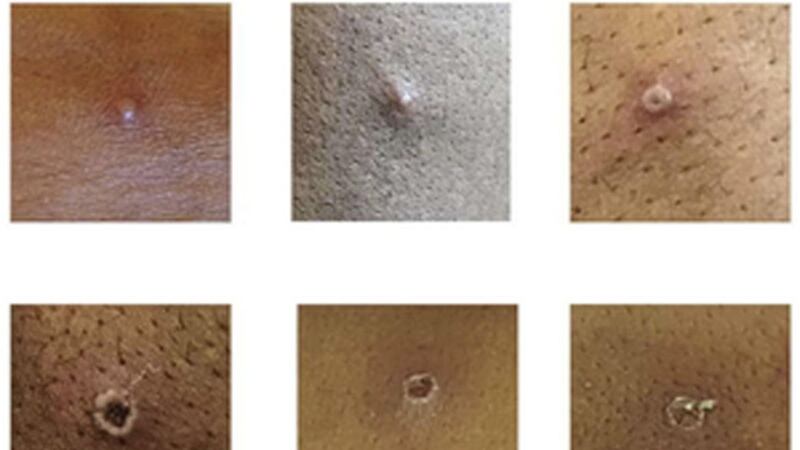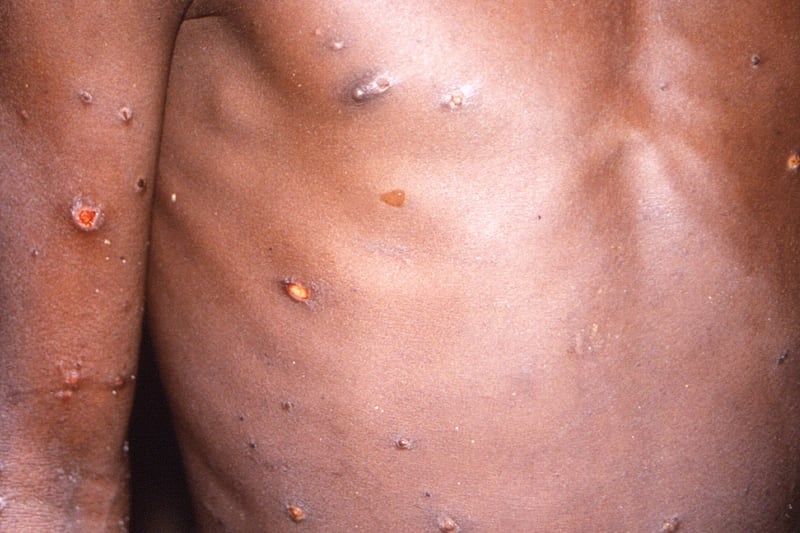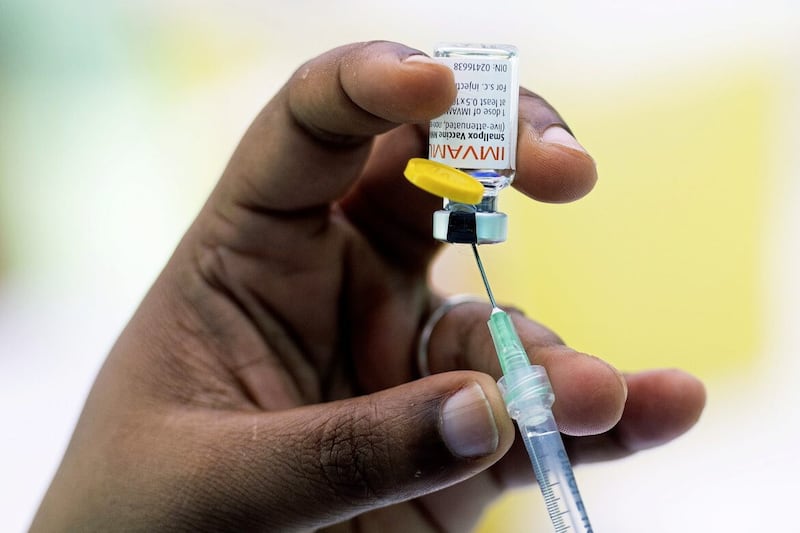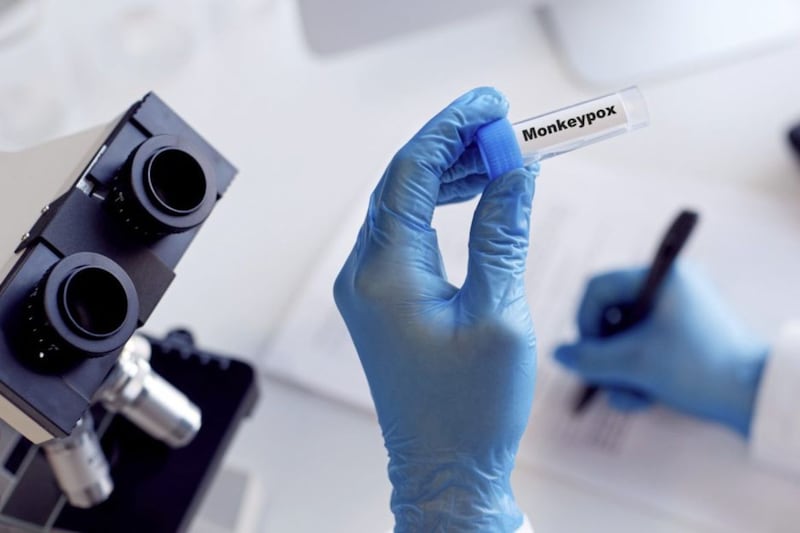THE number of confirmed monkeypox cases across Britain has risen to 71 but no cases of the virus have yet been detected in Northern Ireland, health officials have said.
The UK Health Security Agency (UKHSA) said yesterday that 14 new cases were identified in England, bringing the total number of cases there since May 7 to 70.
Only one case has been confirmed in Scotland to date, and none in Wales and Northern Ireland.
In both the north and the Republic, incident management teams have been established in preparation for cases being confirmed in Ireland.
Symptoms of the virus include a high temperature and a rash of raised spots that can develop into blisters. In most cases the symptoms clear up within two to four weeks.
Officials have stressed that the risk to the population from the virus remains "low", and UKHSA have been tracing "high risk contacts" of those confirmed to have it and advising them to self-isolate for 21 days.
Those identified as a close contact are also being offered a smallpox vaccine to reduce the risk of serious illness.
Parents are being advised not to worry about children contracting monkeypox as cases in youngsters are "rare", with rashes more likely to be caused by chickenpox or hand foot and mouth disease.
Meanwhile, people in the north aged 75 and over are being offered a spring booster dose of the Covid-19 vaccine.
Those who turn 75 by June 30 will be eligible for the new dose, along with those aged 12 and above with weakened immune systems.
Dr Jillian Johnston of the Public Health Agency said: "Covid-19 is more serious in older people and those with a weakened immune system. Protection from the vaccine may be lower and may decline more quickly in these people.
"Although vaccines are expected to provide good protection against severe Covid-19 disease, protection against mild infection with the Omicron variant seems to decline quickly, even after a booster dose, so the additional spring booster will help address this.
"This spring booster is being offered as a precaution to those at extremely high risk, most of whom received their first booster around six months ago. If the number of infections increases over the summer, this booster should help to reduce your risk of being admitted to hospital with Covid-19."
Further details on receiving the spring booster jab is available online at www.nidirect.gov.uk/covid-vaccine.








